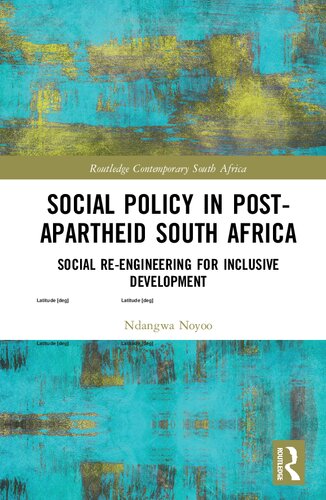

Most ebook files are in PDF format, so you can easily read them using various software such as Foxit Reader or directly on the Google Chrome browser.
Some ebook files are released by publishers in other formats such as .awz, .mobi, .epub, .fb2, etc. You may need to install specific software to read these formats on mobile/PC, such as Calibre.
Please read the tutorial at this link: https://ebookbell.com/faq
We offer FREE conversion to the popular formats you request; however, this may take some time. Therefore, right after payment, please email us, and we will try to provide the service as quickly as possible.
For some exceptional file formats or broken links (if any), please refrain from opening any disputes. Instead, email us first, and we will try to assist within a maximum of 6 hours.
EbookBell Team

4.0
56 reviewsThis book critically examines the current social policy in post-apartheid South Africa and proposes an alternative social policy agenda to create a new development pathway for the country.
Taking social policy as a vehicle that will facilitate the creation of a new society altogether, namely the "Good Society," the author argues for the adoption of policy that will socially re-engineer South Africa. The author shows how the policy tools and development interventions which were undertaken by the post-apartheid state in driving South Africa’s transformation agenda failed to emancipate many individuals, families, and communities from the cycle of intergenerational poverty and underdevelopment. He contends that social policy interventions that foster the social re-engineering of South African society must take place to untangle the inherited colonial-apartheid social order. This book includes comparative analyses on the Global South and Global North to present the ways in which countries such as post-Second World War Great Britain and Sweden, and post-independence Zambia of the 1960s and 1970s, were able to use social policy to create new societies altogether or places similar to the "Good Society."
The conceptual and methodological issues that form the basis for this book reside in public policy-making and the public good and will be of interest to scholars of social policy, social development, and South African society.